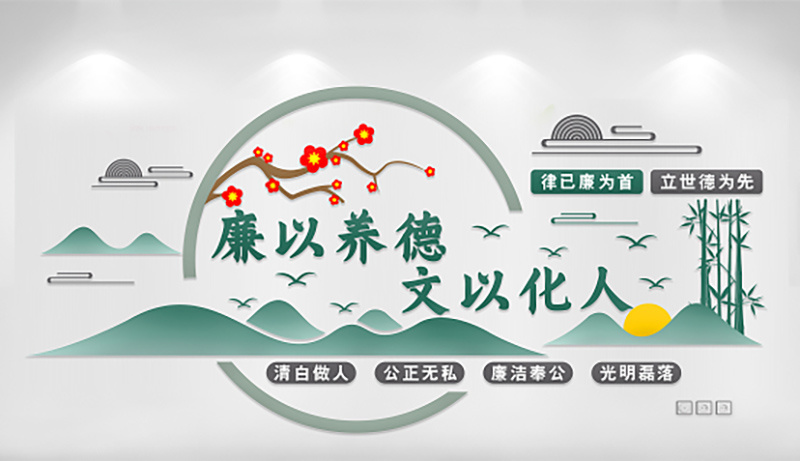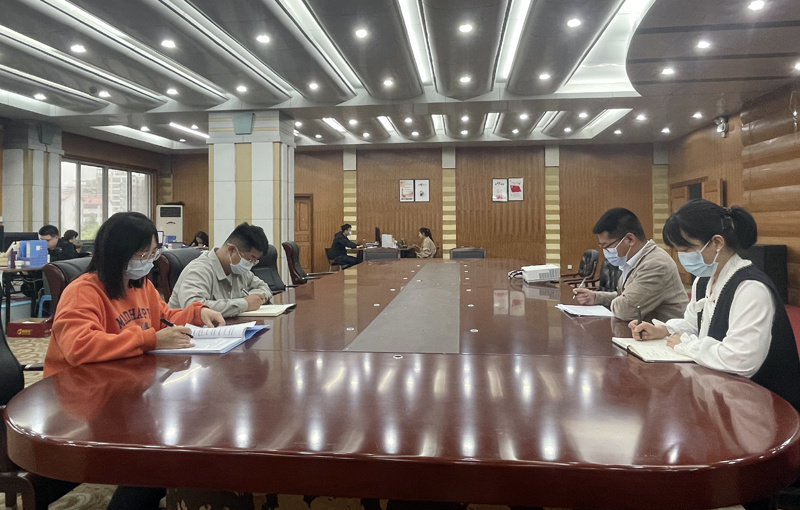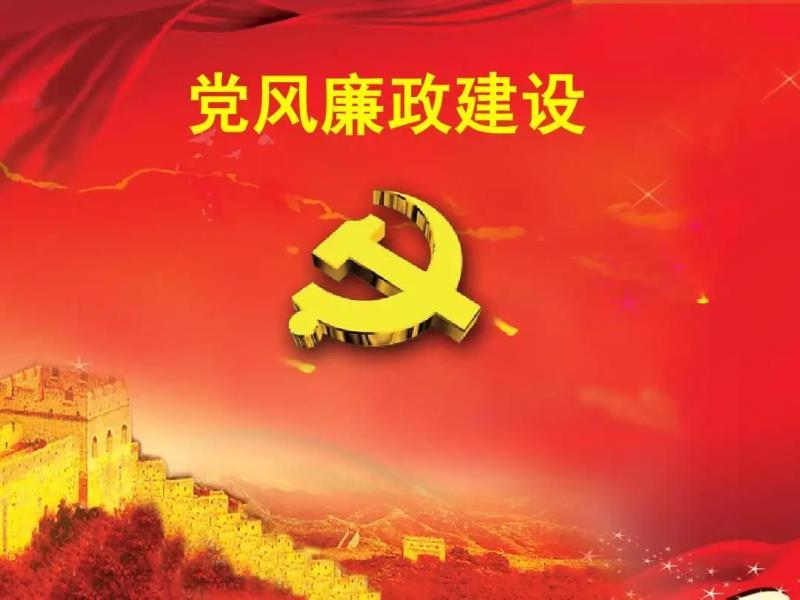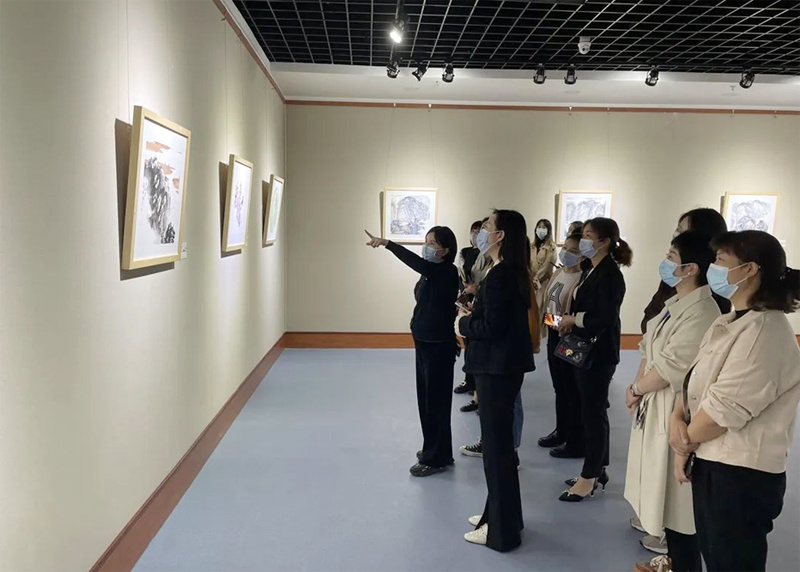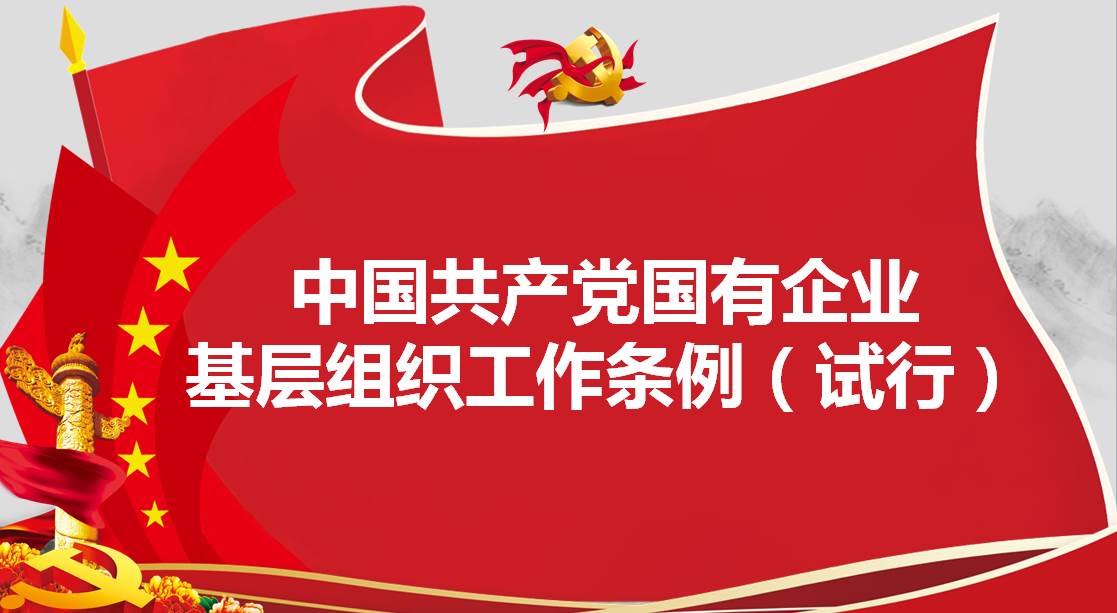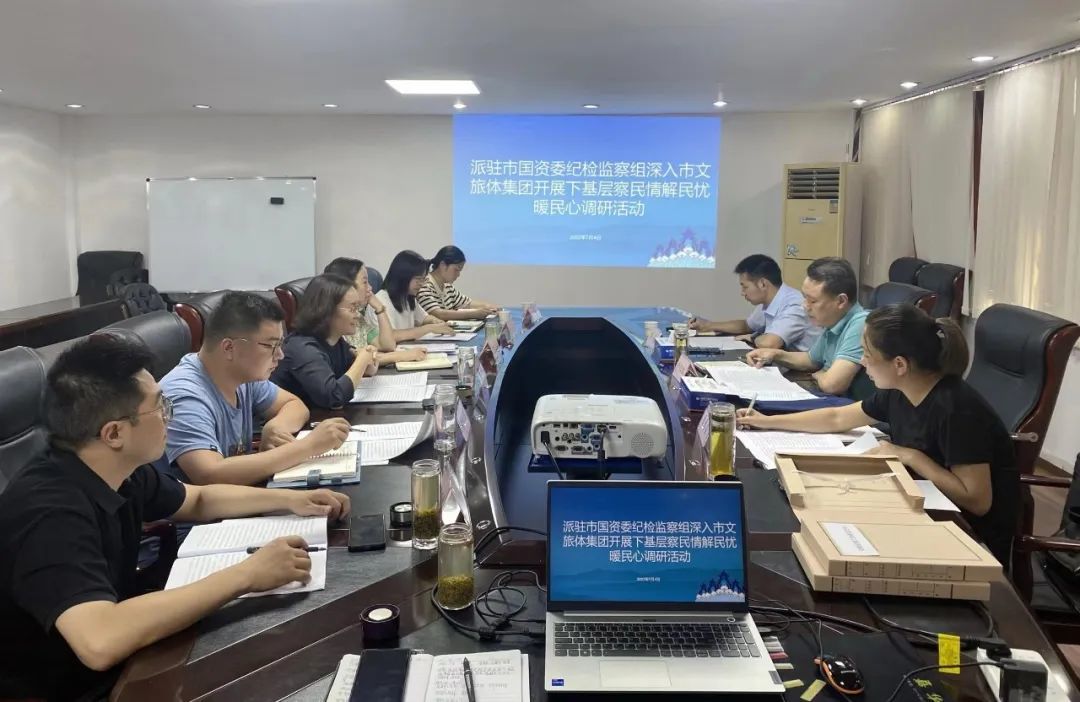28
2020
-
06
The Central Committee of the Communist Party of China issued the "Regulations on the Work of the Grassroots Organizations of State-owned Enterprises of the Communist Party of China (for Trial Implementation)"
Xinhua News Agency, Beijing, January 5th. Recently, the Central Committee of the Communist Party of China issued the "Regulations on the Work of Grassroots Organizations of State-owned Enterprises of the Communist Party of China (for Trial Implementation)" (hereinafter referred to as the "Regulations"), and issued a notice requiring all regions and departments to strictly abide by them.
The circular pointed out that state-owned enterprises are an important material and political foundation of socialism with Chinese characteristics, and an important pillar and strength for the party to govern and rejuvenate the country. Adhering to the party's leadership and strengthening party building is the "root" and "soul" of state-owned enterprises, and is the glorious tradition and unique advantage of state-owned enterprises in my country. Guided by Xi Jinping Thought on Socialism with Chinese Characteristics for a New Era, the "Regulations" thoroughly implement the spirit of the 19th National Congress of the Communist Party of China and the Second, Third and Fourth Plenary Sessions of the 19th Central Committee, implement the requirements of the Party Constitution, and comprehensively regulate the work of party organizations in state-owned enterprises. It is the basic guideline for strengthening the party building of state-owned enterprises in the new era.
The notice requires that party committees (party groups) at all levels should proceed from the perspective of consolidating the party's governing foundation, take the party building of state-owned enterprises as an important task of party management, and take effective measures to strengthen the implementation of responsibilities and promote the "Regulations". Put it into practice and see the actual effect. It is necessary to earnestly study, publicize and implement the "Regulations", and through concentrated study, special seminars, etc., so that party organizations at all levels, especially party organizations and party members and cadres of state-owned enterprises, deeply understand the spirit of the "Regulations" and fully grasp the content of the "Regulations" , strictly abide by and implement the "Regulations". The Organization Department of the Central Committee shall, in conjunction with relevant departments, strengthen supervision and guidance to ensure that the provisions of the "Regulations" are implemented. The important situations and suggestions of various regions and departments in the implementation of the "Regulations" should be reported to the Party Central Committee in a timely manner.
The full text of the Regulations is as follows.
Regulations on the Work of Grassroots Organizations of State-owned Enterprises of the Communist Party of China (for Trial Implementation)
(The meeting of the Political Bureau of the Central Committee of the Communist Party of China on November 29, 2019 reviewed and approved the release of the Central Committee of the Communist Party of China on December 30, 2019)
Chapter 1 General Provisions
Article 1 In order to thoroughly implement Xi Jinping Thought on Socialism with Chinese Characteristics for a New Era, implement the general requirements for party building in the new era and the party's organizational line in the new era, adhere to and strengthen the party's overall leadership over state-owned enterprises, and improve the quality of party building in state-owned enterprises , to promote the high-quality development of state-owned enterprises, and formulate these regulations in accordance with the "Articles of the Communist Party of China" and relevant laws.
Article 2 Party organizations of state-owned enterprises must hold high the great banner of socialism with Chinese characteristics, and be guided by Marxism-Leninism, Mao Zedong Thought, Deng Xiaoping Theory, the important thought of "Three Represents", the Scientific Outlook on Development, and Xi Jinping Thought on Socialism with Chinese Characteristics for a New Era. Adhere to the party's basic theory, line, and strategy, strengthen the "four consciousnesses", strengthen the "four self-confidences", and achieve the "two safeguards", uphold and strengthen the party's overall leadership, and insist that the party should manage the party and comprehensively follow Strictly manage the party, highlight political functions, improve organizational power, strengthen mission awareness and responsibility, promote the deepening of reform of state-owned enterprises, improve the modern enterprise system with Chinese characteristics, and enhance the competitiveness, innovation, control, influence, and anti-risk capabilities of the state-owned economy. , to provide strong political and organizational guarantees for making state-owned capital stronger, better and bigger.
Article 3 The work of party organizations in state-owned enterprises shall follow the following principles:
(1) Adhere to the unity of strengthening the leadership of the party and improving the corporate governance, and integrate the leadership of the party into all aspects of corporate governance;
(2) Adhere to the deep integration of party building work and production and operation, and test the effectiveness of party organization work with the achievements of enterprise reform and development;
(3) Adhere to the party's management of cadres and talents, and cultivate a team of high-quality professional enterprise leaders and talents;
(4) Persist in laying a foundation for the grassroots, highlighting the construction of party branches, and enhancing the vitality of grassroots party organizations;
(5) Adhere to relying wholeheartedly on the working class, embodying the ownership of the masses of enterprise employees, and consolidating the class foundation of the Party's governance.
Chapter 2 Organizational Settings
Article 4 A state-owned enterprise with more than 100 party members shall establish a grass-roots party committee (hereinafter referred to as the party committee). If the number of party members is less than 100, and it is really necessary for work, a party committee may also be established with the approval of the party organization at a higher level.
If the number of party members is more than 50 and less than 100, a general party branch committee (hereinafter referred to as the general party branch) shall be established. If the number of party members is less than 50, and it is really necessary for work, with the approval of the higher party organization, a general party branch may also be established.
If there are more than 3 official party members, a party branch will be established. Party branches with more than 7 formal party members shall establish branch committees.
Approved by the CPC Central Committee, centrally-managed enterprises generally set up party committees, and centrally-managed financial enterprises set up party committees with a party-group nature.
Article 5 The party committee of a state-owned enterprise is elected by the party member meeting or the party member representative assembly, and each term is generally 5 years. The general party branch and the branch committee are elected by the party members' meeting, and each term is generally 3 years. When the term of office expires, a general election shall be held on time. According to the affiliation of the party organization and the management authority of cadres, the higher-level party organization should generally remind 6 months in advance to make preparations for the change of office.
The general election of the party organization of the enterprises (units) directly under the central enterprises is guided by the party committees (party groups) of the central enterprises, and the examination and approval procedures are handled in accordance with the relevant regulations of the party. Central enterprises and their directly affiliated enterprises (units) hold a party member congress, and can allocate representatives to the lower-level enterprises (units) whose party organizations are subordinate to local party organizations.
Article 6 The party committee of a state-owned enterprise generally consists of 5 to 9 members, with a maximum of 11 members, including 1 secretary and 1 to 2 deputy secretaries. If a standing committee is established, the standing committee members of the party committee generally have 5 to 7 members, with a maximum of 9 members, and the party committee members generally have 15 to 21 members. Party committee members should generally have party experience of more than 3 years, among which the party committee members of central enterprises and their directly affiliated enterprises (units) and provincial state-owned enterprises should have party experience of more than 5 years.
The general party branch of a state-owned enterprise generally consists of 5 to 7 members, with a maximum of 9 members; the branch committee consists of 3 to 5 members, usually no more than 7 members. A party branch with less than seven formal party members shall have one secretary and, if necessary, a deputy secretary. The secretary of the party branch (general party branch) should generally have party experience of more than one year.
Article 7 The secretary and deputy secretary of the party organization of a state-owned enterprise and the members of the standing committee of the party committee that establish the standing committee are generally elected by the plenary meeting of the committee at the same level. The election results are reported to the higher party organization for approval.
When the party committee (party group) of a central enterprise deems it necessary, it may mobilize or assign the person in charge of the party organization of the directly affiliated enterprise (unit).
Article 8 The party committee of a state-owned enterprise shall establish a discipline inspection committee or a discipline inspection committee, and the general party branch and branch committee shall establish a discipline inspection committee.
Article 9 In the process of promoting mixed ownership reform, state-owned enterprises shall simultaneously set up or adjust party organizations, straighten out the affiliation of party organizations, and simultaneously select the person in charge of the party organization and party affairs staff to effectively carry out party work.
Article 10 For the temporary establishment of engineering projects, R&D teams and other institutions to perform a certain task, if the relationship between party members and organizations is not transferred, a temporary party organization may be established with the approval of the superior party organization. The members of the leadership team of the temporary party organization shall be designated by the party organization that approved its establishment.
Chapter 3 Main Responsibilities
Article 11 The party committee (party group) of a state-owned enterprise shall play a leading role, set the direction, manage the overall situation, ensure the implementation, and discuss and decide on major enterprise matters in accordance with regulations. The main responsibilities are:
(1) Strengthen the political construction of the enterprise party, adhere to and implement the basic system, basic system and important system of socialism with Chinese characteristics, educate and guide all party members to always take Comrade Xi Jinping as the core in their political position, political direction, political principle and political path The Party Central Committee maintains a high degree of consistency;
(2) In-depth study and implementation of Xi Jinping Thought on Socialism with Chinese Characteristics for a New Era, study and publicize the Party's theory, implement the Party's line, principles and policies, supervise and ensure that the major decisions and arrangements of the Party Central Committee and the resolutions of higher-level Party organizations are implemented in the enterprise;
(3) Studying and discussing major business management matters of the enterprise, and supporting the shareholders (general) meeting, the board of directors, the board of supervisors and the management in exercising their functions and powers in accordance with the law;
(4) Strengthen the leadership and check on the selection and employment of the enterprise, and do a good job in the construction of the enterprise leadership team, cadre team and talent team;
(5) Fulfill the main responsibility of the enterprise's party style and clean government construction, lead and support the internal discipline inspection organization to perform the responsibility of supervision and discipline enforcement, strictly clarify political discipline and political rules, and promote the extension of comprehensive and strict party governance to the grassroots;
(6) Strengthen the construction of grass-roots party organizations and party members, and unite and lead the workers and the masses to actively participate in the reform and development of enterprises;
(7) Lead the ideological and political work, spiritual civilization construction, and united front work of the enterprise, and lead the enterprise trade union, the Communist Youth League, women's organization and other mass organizations.
Article 12 The party branch (general party branch) of a state-owned enterprise and the party committee established in the internal organization shall carry out work around production and operation, and play the role of a battle fortress. The main responsibilities are:
(1) Study, publicize and implement the Party's theory, line, principles and policies, publicize and implement the resolutions of the Party Central Committee, higher-level Party organizations and the organization, and unite and lead the workers and the masses to complete various tasks of the unit.
(2) Participate in the decision-making of major issues of the unit in accordance with regulations, and support the person in charge of the unit to carry out work.
(3) Do a good job in the education, management, supervision, service and development of party members, strictly control the party's organizational life, organize party members to create first and strive for excellence, and give full play to the vanguard and exemplary role of party members.
(4) Closely contact the masses of workers, promote the resolution of reasonable demands of the masses of workers, and conscientiously do a good job in ideological and political work. Lead the trade unions, the Communist Youth League, women's organizations and other mass organizations in the unit, and support them to carry out their work independently and responsibly in accordance with their respective charters.
(5) Supervise party members, cadres and other staff of the enterprise to strictly abide by the laws and regulations of the state, the financial and personnel system of the enterprise, and safeguard the interests of the country, the collective and the masses.
(6) Seek truth from facts, put forward opinions and suggestions on party building and party work, and report important situations to higher-level party organizations in a timely manner. Party members and the masses are informed of the Party's work in accordance with regulations.
Chapter 4 Party Leadership and Corporate Governance
Article 13 State-owned enterprises shall include party building work requirements into the company's articles of association, specify important matters such as the party organization's responsibilities, authority, institutional setup, operating mechanism, and basic guarantees, and clarify that party organization research and discussion are major issues for the board of directors and managers to make decisions. Preliminary procedures to implement the legal status of the party organization in the corporate governance structure.
Article 14 Adhere to and improve the leadership system of "two-way entry and cross-serving". Eligible members of the party committee (party group) team can enter the board of directors, the board of supervisors, and the management level through legal procedures, and qualified party members among the members of the board of directors, the board of supervisors, and the management level You can enter the party committee (party group) in accordance with relevant regulations and procedures.
The secretary and chairman of the party committee (party group) are generally held by one person, and the general manager of the party member serves as the deputy secretary. If it is indeed necessary for a higher-level enterprise to serve as the chairman of the board, according to the actual situation of the enterprise, the secretary of the party committee can be the general manager of the party member, or it can be appointed separately.
For an independent legal person enterprise without a board of directors and only an executive director, the secretary of the party committee and the executive director are generally held by one person. If the general manager is set up alone and is a party member, he should generally serve as the deputy secretary of the party committee.
For non-independent legal person enterprises such as branches, whether the secretary of the party committee and the general manager are separated shall be determined according to the actual situation. Generally, the secretary of the party committee serves as the deputy general manager, and the general manager of the party member serves as the deputy secretary of the party committee.
The party committee (party group) of a central enterprise is equipped with a full-time deputy secretary. The full-time deputy secretary generally joins the board of directors and does not serve at the managerial level, and is specially responsible for party building work. Enterprises (units) affiliated to central enterprises and local state-owned enterprise party committees with larger scale and more employees and party members may be equipped with full-time deputy secretaries. The person in charge of the internal discipline inspection organization in the party committee (party group) team of a state-owned enterprise generally does not hold other positions concurrently.
State-owned enterprise party organizations implement a system of combining collective leadership and individual division of labor and responsibility. Members of the party organization's leadership team who enter the board of directors, board of supervisors, and managers must implement the party organization's decisions.
Article 15 The major operation and management matters of state-owned enterprises must be studied and discussed by the party committee (party group), and then the board of directors or the management shall make a decision. The main issues discussed in the study include:
(1) Major measures to implement the decisions and arrangements of the CPC Central Committee and implement the national development strategy;
(2) Enterprise development strategies, medium and long-term development plans, and important reform plans;
(3) Principled and directional issues in the reorganization of enterprise assets, transfer of property rights, capital operation and large-scale investment;
(4) The establishment and adjustment of the organizational structure of the enterprise, and the formulation and revision of important rules and regulations;
(5) Major matters involving enterprise safety production, maintenance of stability, employee rights and interests, social responsibility, etc.;
(6) Other important matters that should be studied and discussed by the party committee (party group).
The party committee (party group) of a state-owned enterprise shall formulate a list of matters to be studied and discussed in light of the actual situation of the enterprise, and clarify the powers and responsibilities of the party committee (party group) and other governance bodies such as the board of directors, the board of supervisors, and the management.
The party branch (general party branch) of an independent legal person enterprise with decision-making power on major matters of human, property and property and without a party committee generally has a party member in charge as the secretary and committee member, and the party branch (general party branch) conducts collective research and checks on major matters of the enterprise.
Article 16 The party organization of a state-owned enterprise shall, in accordance with the management authority of cadres, standardize the procedures for motion nomination, organization inspection, discussion and decision, etc., and implement the requirements of loyalty to the party, courage to innovate, well-organized enterprise management, promising enterprise development, honesty and integrity, and honesty and integrity. It is good to select enterprise leaders for work, increase the training and selection of outstanding young leaders, strengthen the management and supervision of enterprise leaders, and ensure the party's leadership over cadres and personnel work and management of important cadres.
Implement the strategy of strengthening the enterprise with talents, improve the mechanism of talent training, introduction and use, focus on the work of enterprise management talents, professional and technical talents, high-skilled talents and talents in short supply in special fields, stimulate and protect the entrepreneurial spirit, and create a good environment for encouraging innovation and entrepreneurship. surroundings.
Article 17 Improve the democratic management system with the workers' congress as the basic form, explore effective ways for workers to participate in management, promote the openness of factory affairs and business, protect workers' rights to know, participate, express, and supervise, and safeguard workers' legality rights and interests. The opinions of employees shall be listened to in major decisions, and major issues involving the vital interests of employees must be reviewed by the employees' congress or the employees' meeting. Adhere to and improve the employee director system and employee supervisor system to ensure the orderly participation of employee representatives in corporate governance.
Chapter 5 Party Member Team Building
Article 18 Party organizations of state-owned enterprises shall adhere to the combination of centralized education and regular education, adopt centralized rotation training, Party committee (party group) theoretical learning center group learning, theoretical lectures, online learning and training, etc., to strengthen political theoretical education and the Party's purpose Education, party constitution, party discipline, party discipline, and revolutionary tradition education, organize and guide party members to earnestly study the history of the party, the history of new China, and the history of reform and opening up, and promote the normalization and institutionalization of "two learning and one doing" learning and education, so as to keep the original intention and stay firmly in mind.
Related content
市(shì)文旅體集團啓動黨風廉政建設宣傳教育月(yuè)活動
8月(yuè)26日下(xià)午,市(shì)文旅體集團組織召開(kāi)黨風廉政建設宣傳教育月(yuè)活動動員(yuán)部署會(huì)。集團黨委書記、董事(shì)長(cháng)周義波同志(zhì)出席會(huì)議并講話。會(huì)議宣讀(dú)《市(shì)文旅體集團2022年(nián)黨風廉政建設宣傳教育月(yuè)活動實施方案》,集團班子成員(yuán)、全體黨員(yuán)幹部職工(gōng)及分公司負責人參加會(huì)議。
Recently, in order to effectively promote the internal control management of Shiyan Culture, Tourism and Sports Investment Group, strengthen the supervision of audit work, and improve the awareness of risk management and control, the Group Audit and Risk Control Department has actively carried out "post training" activities in combination with department functions.
Sound the alarm bell of honest work and build a dam against corruption and change
In order to conscientiously implement the Municipal Party Committee's "Implementation Opinions on Promoting the Construction of a Clean Shiyan", enhance Shiyan Culture, Tourism and Sports Investment and Development Group Co., Ltd.'s sense of responsibility in implementing the Party and governing the Party, and establish and improve systems and mechanisms that dare not, cannot, and do not want to be corrupt, To create a clean and upright state-owned enterprise culture, the Municipal Culture, Tourism and Sports Group actively fulfilled its duties, sounded the alarm for all cadres and employees of the group company, and built a dam against corruption and change.
根據市(shì)總工(gōng)會(huì)《關于組織全市(shì)女職工(gōng)進行黨風廉政主題參觀活動的通(tōng)知》要求,市(shì)文旅體集團積極組織集團公司女職工(gōng)開(kāi)展“堅守廉潔底線,創建美好生(shēng)活”黨風廉政主題活動。5月(yuè)11日上(shàng)午,市(shì)文旅體投組織女職工(gōng)赴十堰市(shì)美術(shù)館參觀第二屆“記憶中的風景”清廉文化中國(guó)畫(huà)小(xiǎo)品展。
Xinhua News Agency, Beijing, January 5th. Recently, the Central Committee of the Communist Party of China issued the "Regulations on the Work of Grassroots Organizations of State-owned Enterprises of the Communist Party of China (for Trial Implementation)" (hereinafter referred to as the "Regulations"), and issued a notice requiring all regions and departments to strictly abide by them.
The Municipal Commission for Discipline Inspection dispatched the
On the afternoon of July 4th, the Municipal Commission for Discipline Inspection and Supervision dispatched the Disciplinary Inspection and Supervision Team of the State-owned Assets Supervision and Administration Commission of the Municipal Government to go deep into the Shiyan Culture, Tourism and Sports Investment Group to carry out the research activity of "going down to the grassroots level, inspecting people's feelings, solving people's worries, and warming people's hearts". The team leader He Renquan and his party listened carefully to the company appeals to help enterprises to solve difficulties.

Group public account

You Xianer Baidu small program

You Xianer micro channel mini program

You Xianer wechat public account
CONTACT US
Address: No. 83 North Beijing Road, Wuyan Sub-district, Maojian District, Shiyan City, Hubei Province
TEL:+86-719-8697138
Copyright © SCTSID All Rights Reserved Powered by www.300.cn
This website already supports IPV4 / IPV6 bidirectional access

 Mobile Site
Mobile Site